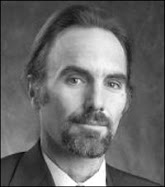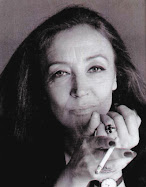 Hugo’s ‘Socialist’ Folly
Hugo’s ‘Socialist’ FollyVenezuela’s economic controls make the rich, richer – and poor, poorer
By David Paulin
Months into his presidency, Hugo Chavez tested the patience of Venezuelans with his frequent weeknight television addresses. Long and rambling, the impromptu talks provoked a common gripe that Venezuela’s press soon reported on: People were missing their favorite telenovelas.
Venezuelans rebelled after ten months.
Minutes after Chavez began yet another address, they went to their windows holding kitchen spoons and pots. In a traditional Venezuelan protest, they banged them furiously as Chavez recounted his first 300 days in office. The first such protest against El Presidente occurred amid a paralyzed economy and record-low oil prices.
From my apartment in eastern Caracas, the pot-banging protest was so loud that, when I phoned fellow journalists, they could clearly hear the clanging over the telephone receiver I held out the window. Like a slow-moving grass fire, the protest in early December, 1999, spread from one apartment building and city block to another, mainly in middle and lower-middle class areas. Some TV reports showed people in slum areas engaging in the protest, apparently upset over soaring crime.
People were growing impatient. Chavez had won a landslide election because Venezuelans from all socio-economic classes – and not merely the poor, as is so often claimed – trusted the anti-establishment figure to clean up corruption and reduce declining living standards in the oil-rich but impoverished South American nation. But Chavez had yet to undertake meaningful democratic reforms.
Chavez no longer commands the popularity he did. Massive street protests are common. But whether they’re for Chavez or against him, Venezuelans over the past four years have furtively engaged in another kind of protest, one that has attracted much less media attention than massive street demonstrations. Whenever they can, they’re circumventing two of the cornerstones of Chavez’s command-and-control economy – draconian currency exchange and price controls.
The controls underscore an old joke about socialist states: they offer socialism for the masses, and capitalism for the classes. Like Cuba’s dollar-based tourism economy, Venezuela’s has a parallel economy because of the controls. Rather than delivering Bolivarian social justice, they’re making the rich, richer – and poor, poorer. They’re also producing “periodic” food shortages that mainly affect the poor.
Nearly four years ago, a crippling three-month oil worker strike prompted Chavez to introduce the controls to stop capital flight. Price controls were put on some 400 items to combat soaring inflation, now the highest in Latin America at 16 percent. As in the past, record-high oil prices have driven inflation, thanks to a flood of petro-dollars that has produced a government and consumer spending spree.
Like earlier Venezuelan leaders who implemented similar controls, Chavez has been bedeviled be a force more powerful than his edicts – the market. The economic controls have widened the gap between government-regulated prices and the cost of getting goods to consumers; and hence the periodic food shortages.
In typical leftist fashion, Chavez has blamed the food shortages on the usual scapegoats – “speculators” and “hoarders.” Retailers, however, answer to Adam Smith, not the utopian Marxist ideals that enthrall Chavez. They must sell at a profit, not a loss.
For their part, well-off Venezuelans find ways around the shortages, either buying goods on the black market or from retailers who discretely sell above regulated prices. That’s not the case with the poor.
Just ask Ana Diaz, a 70-year-old housewife, who recently discovered that Chavez’s famous food markets – which sell at below-market prices – are not immune from market forces. "They say there are no shortages, but I'm not finding anything in the stores," she told an Associated Press reporter last February. Nor is Bolivarian socialism very customer-oriented. Diaz said she waited in line for eight hours – all for a bag of chicken, milk, vegetable oil and sugar.
The article’s headline announced: “Meat, Sugar Scarce in Venezuela Stores.”
According to its opening paragraph:
“Meat cuts vanished from Venezuelan supermarkets this week, leaving only unsavory bits like chicken feet, while costly artificial sweeteners have increasingly replaced sugar, and many staples sell far above government-fixed prices.”
Chavez is not the first Venezuelan president to undertake price and exchange controls. His predecessor, Rafael Caldera, implemented similarly draconian exchange and price controls in an effort to halt falling living standards. But amid an increasingly deteriorating economy and record-low oil prices, Caldera eventually saw the light. Going against his populists and leftist ideological instincts, he inaugurated a series of painful economic reforms backed by the International Monitory Fund.
When reporting on Caldera’s about face, I wrote the kind of story editors want – one describing the short-term pain felt by ordinary people thanks to Caldera’s IMF-backed reforms. “Things are tough. We're eating less meat and lots more pasta, rice and beans,” I quoted Dila Ferreira, a 57-year-old maid, as saying in articles published in several major newspaper. Her comment was reflected by marketing surveys showing that low-income Venezuelans were indeed changing their eating habits.
I wonder how Ferreira is doing today. Under Caldera’s painful free-market reforms, she was eating less meat. Now, she may not be eating any meat at all.
Chavez claims his anti-poverty programs have reduced Venezuela’s poverty rate. But poverty experts say they are not serious programs that will produce lasting changes, and their impact has been marginal at best.
Ironically, the market has probably produced greater reductions in poverty than Bolivarian socialism and earlier anti-poverty programs. Traditionally, Venezuela has seen poverty decrease during earlier oil booms. In the oil-based economy, the market’s trickle-down effect tended to lift everyone’s boat in spite of Venezuela having some of the world’s worst corruption and inept governance. By all accounts, these scourges have soared to epic levels under Chavez.
A Party for the rich
Despite Chavez’s socialist pretensions, the go-go days of “Saudi Venezuela” – as Venezuela was called in the 1970s – have returned. The rich and merely well off are having a party, which is reflected in a surge of bourgeoisie imports such as expensive whiskey, high demand for plastic surgery, and an overseas travel binge.
Sales of expensive cars are booming, too, just as during the Caldera’s era of soaring inflation and economic controls. Unable to buy U.S. dollars as a hedge against soaring inflation, people instead buy durable goods such as cars.
Living hand to mouth, the poor have no such options in the face of accumulated inflation that has soared past 80 percent the past four years. And they’ll soon suffer more when Chavez devalues the currency, as he’s poised to do, to pay for his spending spree at home and abroad. The bolivar’s official rate is 2,150 to $1, but on the black market a dollar is worth twice that amount.
Chavez’s Bolivarian socialism and exchange controls are making for odd bedfellows, too. They controls are frightening off potential investors, hindering the repatriation of profits, and impeding local businesses that depend on imports. The constantly complain about an inability to obtain an adequate supply of dollars.
Corruption under the controls is another problem. Under Chavez and previous administrations that implemented exchange controls, officials have regularly been accused of accepting bribes to authorize or speed up requests to buy dollars.
Ironically, the controls are producing handsome profits on the Caracas Stock Exchange, the workplace of some of those “oligarchs” whom Chavez so often vilifies. Companies have been utilizing the stock exchange’s dollar-denominated bond market to meet their need for dollars.
The controls are not the only example of Bolivarian socialism’s contradictions. After a hard day at the office, those bond traders can fill up their Hummers for about $1.50. Catering to the notion that cheap gasoline is a Venezuelan birthright, Chavez’s administration, like earlier ones, spends billions of dollars to sell gasoline at unprofitable prices, about 7 cents per gallon. The gasoline subsidy exceeds what Chavez spends on his social programs, say economists.
When writing about the exchange controls during Caldera’s era, I also noted they were proving to be a boon for Colombian counterfeiting gangs. They were doing a brisk business selling fake U.S. $100 greenbacks to unsuspecting Venezuelans.
In the scramble to obtain dollars, the real wheeling and dealing occurs on the black market. Some Venezuelans have been buying U.S. dollars at the official rate, claiming they need them for a trip. Then they sell them on the black market for twice their value.
Recently, Bloomberg described one scheme:
“Some Venezuelans travel to nearby Curaçao, where they buy $5,000 of casino poker chips with their credit cards, exchange the chips for cash and then sell the dollars on the black market back in Caracas.”
Chavez has vowed to crack down on such schemes. But he’s unlikely to eliminate untold numbers of less conspicuous black market transactions involving willing buyers and sellers.
During Caldera’s exchange controls, I regularly visited a good-natured Spaniard who had a retail outlet that depended on U.S. imports. I wrote him checks from a Miami bank, which he then sent to his U.S. bank. He gladly paid me a good black market rate. I was one popular gringo. They were good days for people who earned decent salaries and got paid in U.S. dollars.
Under Chavez, those days are back with a vengeance. Under the banner of socialism and anti-Americanism, he has repackaged bad ideas from Venezuela’s past – statism, authoritarianism, and populism – and taken them to new extremes. Blessed with record-high oil prices, he has created a new class of elites. The poor majority, meanwhile, gets bread-and-circus populism.
In the end, Bolivarian socialism in the 21st Century looks a lot like earlier variants that ended in failure.
Author's Note: This article was originally published at FrontPage Magazine.











